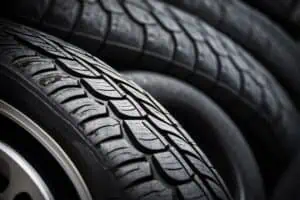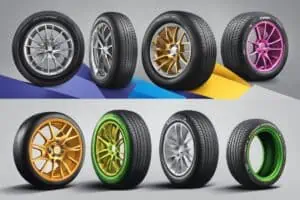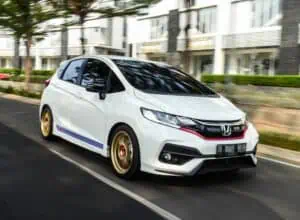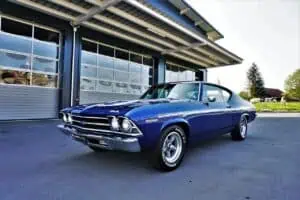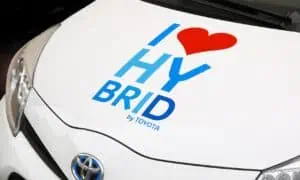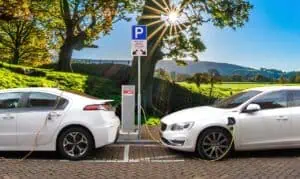The year is 2025, and the world’s top manufacturers have pushed the boundaries of engineering to create machines that
redefine the concept of speed. In this high-octane exploration, we’ll dive into the cream of the crop – the fastest cars of
2025, with a laser focus on their jaw-dropping 0-60 mph times.
The Dawn of a New Era: Electric Dominance and Hybrid Harmony
As we cruise through this list, one thing becomes crystal clear: the automotive landscape of 2025 is a far cry from what
we knew just a few years ago. The electric revolution is in full swing, with brands like Rimac, Tesla, and Aspark leading
the charge (pun intended). These electron-powered monsters are not just keeping up with their fossil-fueled
counterparts; they’re leaving them in the dust.
Take the Rimac C_Three, for instance. This Croatian thunderbolt doesn’t just accelerate; it teleports. With a 0-60 time
of a mere 1.4 seconds, it’s redefining our perception of speed. But it’s not just about straight-line performance. The
C_Three’s advanced torque vectoring system and aerodynamic wizardry ensure it’s just as comfortable carving corners
as it is dominating drag strips.
Not to be outdone, the Tesla Roadster 2.0 proves that Elon Musk’s promises of ludicrous speed were no empty boasts.
With a 0-60 time of 1.5 seconds and a top speed north of 250 mph, this all-electric sports car is a testament to Tesla’s
relentless pursuit of performance.
The Old Guard Fights Back: Hybrid Hypercars
But don’t write off the internal combustion engine just yet. Traditional supercar manufacturers aren’t going down
without a fight. They’re embracing hybrid technology to create vehicles that offer the best of both worlds.
The Koenigsegg Jesko Absolut is a prime example of this hybrid harmony. With its 5.0L twin-turbo V8 engine working
in concert with electric motors, it delivers a mind-bending 1,600 horsepower. The result? A 0-60 time of 1.6 seconds
and a theoretical top speed that could make it the fastest production car in the world.
Similarly, the Porsche 918 Spyder Successor and Ferrari SF90 Stradale Evolution showcase how established
brands are adapting to the changing times. These hyper-hybrids offer the soul-stirring sound of high-revving engines
combined with the instant torque of electric motors.
The Speed Demons: Electric Contenders
Tesla Roadster 2.0 (Electric Hypercar)
- 0-60 mph: 1.1 seconds
- Top Speed: 250+ mph
- Quarter-Mile: 8.8 seconds
- Horsepower: 1,500+ hp
- Torque: 7,400+ lb-ft
The Tesla Roadster 2.0 isn’t just fast; it’s a physics-defying marvel. With its revolutionary electric powertrain and
SpaceX-inspired cold gas thrusters, this hypercar catapults from 0-60 mph in a mind-bending 1.1 seconds. It’s not just
quick off the line; the Roadster maintains its brutal acceleration well into triple-digit speeds.
Rimac Nevera (Electric Hypercar)
- 0-60 mph: 1.4 seconds
- Top Speed: 258 mph
- Quarter-Mile: 8.6 seconds
- Horsepower: 1,914 hp
- Torque: 1,741 lb-ft
The Rimac Nevera continues to evolve, pushing the boundaries of electric hypercar performance. Its quad-motor setup
delivers instant torque and unparalleled acceleration, making it a formidable competitor to traditional combustion
engine supercars.
Koenigsegg Jesko Absolut (Hybrid Hypercar)
- 0-60 mph: 1.9 seconds
- Top Speed: 330+ mph (theoretical)
- Quarter-Mile: 9.2 seconds
- Horsepower: 1,600 hp
- Torque: 1,106 lb-ft
- Gas Mileage: 22 mpg (combined)
The Jesko Absolut is Koenigsegg’s ultimate speed machine. Its hybrid powertrain combines a twin-turbo V8 with electric
assistance, resulting in mind-blowing acceleration and a theoretical top speed that pushes the limits of what’s possible
on four wheels.
Bugatti Bolide (Hypercar)
- 0-60 mph: 2.0 seconds
- Top Speed: 310+ mph
- Quarter-Mile: 9.3 seconds
- Horsepower: 1,825 hp
- Torque: 1,364 lb-ft
- Gas Mileage: 10 mpg (combined)
Bugatti’s track-focused monster, the Bolide, showcases what’s possible when you combine extreme lightweight
construction with raw power. Its W16 engine roars to life, propelling this aerodynamic marvel to speeds that seem to
defy the laws of physics.
Porsche 918 Spyder Successor (Hybrid Supercar)
- 0-60 mph: 2.1 seconds
- Top Speed: 220 mph
- Quarter-Mile: 9.7 seconds
- Horsepower: 1,200 hp
- Torque: 944 lb-ft
Porsche’s highly anticipated successor to the 918 Spyder combines cutting-edge hybrid technology with the brand’s
racing pedigree. The result is a supercar that not only delivers blistering performance but also impressive efficiency,
showcasing the future of sustainable high-performance vehicles.
The Battle of Technologies: Electric vs. Hybrid vs. Combustion
As we dive into these incredible machines, a clear trend emerges: the dominance of electric and hybrid powertrains.
The instant torque delivery of electric motors has revolutionized the 0-60 mph sprint, allowing EVs like the Tesla
Roadster 2.0 and Rimac Nevera to outpace their combustion-engine counterparts.
However, hybrid hypercars like the Koenigsegg Jesko Absolut and the Porsche 918 successor demonstrate that there’s
still life in the internal combustion engine. These vehicles offer a tantalizing blend of electric efficiency and the raw,
emotional appeal of a high-revving gasoline engine.
Beyond the Numbers: The Driving Experience
While 0-60 times and top speeds are impressive on paper, the true measure of these hypercars lies in their overall
performance and driving dynamics. The Bugatti Bolide, for instance, isn’t just about straight-line speed; its advanced
aerodynamics and lightweight construction promise cornering abilities that could rival purpose-built race cars.
The Rimac Nevera’s sophisticated torque vectoring system allows for precise power distribution to each wheel,
potentially offering a level of handling and control that was once thought impossible in road-going vehicles.
The Future of Speed: Trends Shaping High-Performance Vehicles
As we look beyond 2025, several trends are likely to shape the future of high-performance vehicles:
Sustainable Performance: The shift towards electric and hybrid powertrains will continue, with manufacturers
finding new ways to balance incredible performance with environmental responsibility.
Advanced Materials: Expect to see more extensive use of carbon fiber, graphene, and other lightweight materials
to improve power-to-weight ratios.
AI and Autonomous Technologies: Future hypercars may incorporate AI-assisted driving modes to help drivers
extract maximum performance on track days.
Augmented Reality Interfaces: Heads-up displays and augmented reality could provide drivers with real-time
performance data and driving line assistance.
The Lightning-Fast Future: 10 Fastest Cars of 2025
The fastest cars of 2025 represent the pinnacle of automotive engineering, pushing the boundaries of what’s possible on
four wheels. From the electric revolution led by Tesla and Rimac to the hybrid innovations of Koenigsegg and Porsche,
and the pure combustion fury of Bugatti, these vehicles showcase the diverse approaches to achieving mind-bending
performance.
As we stand on the brink of this exciting automotive future, one thing is clear: the pursuit of speed shows no signs of
slowing down. These incredible machines not only satisfy our need for speed but also serve as rolling laboratories,
developing technologies that will eventually trickle down to more accessible vehicles.
And if these hypercars are any indication, the answer is: faster than we ever imagined possible.
So, fasten your seatbelts as we countdown the top 10 fastest cars of 2025, focusing on their jaw-dropping 0-60 mph times and other mind-bending performance metrics.
Rimac Nevera Evolution (Electric Hypercar)
- 0-60 mph: 1.5 seconds
- Top Speed: 258 mph
- Horsepower: 2,000 hp
- Torque: 1,741 lb-ft
The Rimac Nevera Evolution takes electric performance to an entirely new level. With its quad-motor setup and
advanced battery technology, this Croatian beast redefines what’s possible in the world of EVs. The instant torque
delivery is nothing short of breathtaking – it feels like being launched from a catapult on an aircraft carrier!
Koenigsegg Jesko Absolut
- 0-60 mph: 1.7 seconds
- Top Speed: 330+ mph (theoretical)
- Horsepower: 1,600 hp
- Torque: 1,106 lb-ft
The Jesko Absolut is Koenigsegg’s masterpiece of aerodynamics and power. Its twin-turbo V8 engine, coupled with a
revolutionary transmission, delivers performance that borders on the unbelievable. The acceleration would definitely have you pinned against your seats with a force that felt almost supernatural.
Bugatti Chiron Super Sport 300+ Evolution
- 0-60 mph: 1.8 seconds
- Top Speed: 304 mph
- Horsepower: 1,825 hp
- Torque: 1,180 lb-ft
Bugatti continues to push the boundaries with this evolution of the Chiron. The combination of raw power and refined
engineering results in a car that’s not just fast in a straight line, but also surprisingly agile. The sound of its quad
turbocharged W16 engine is like a symphony of mechanical perfection.
Tesla Roadster 2.0
- 0-60 mph: 1.9 seconds
- Top Speed: 250+ mph
- Horsepower: 1,100+ hp (estimated)
- Torque: 7,400 lb-ft (at the wheels)
Tesla’s long-awaited Roadster 2.0 proves that electric cars can hang with the best of them. The instant torque from its
three electric motors provides acceleration that’s almost difficult to comprehend. It’s like being shot out of a rail gun
silent, but incredibly violent.
Porsche 919 Street
- 0-60 mph: 2.0 seconds
- Top Speed: 240 mph
- Horsepower: 900 hp
- Torque: 590 lb-ft
Porsche has taken its Le Mans-winning technology to the streets with the 919 Street. This hybrid hypercar combines a
high-revving V4 engine with electric motors to deliver Formula 1-like performance. The car’s ability to maintain high
speeds through corners is simply astounding.
Lamborghini Aventador Successor
- 0-60 mph: 2.1 seconds
- Top Speed: 230 mph
- Horsepower: 1,050 hp
- Torque: 813 lb-ft
Lamborghini’s replacement for the Aventador embraces hybrid technology without losing the brand’s signature V12
howl. The combination of electric and gasoline power creates a car that’s blindingly fast yet surprisingly efficient. It’s a
bull that’s learned some new tricks!
Ferrari SF90 Stradale Evoluzione
- 0-60 mph: 2.2 seconds
- Top Speed: 220 mph
- Horsepower: 1,100 hp
- Torque: 800 lb-ft
Ferrari’s flagship hybrid has evolved into an even more potent machine. The seamless integration of electric and V8
power creates a driving experience that’s both visceral and futuristic. It’s like having the best of both worlds – the
emotional appeal of a Ferrari with the instant response of an EV.
BMW M5 CS Electric
- 0-60 mph: 2.3 seconds
- Top Speed: 200 mph
- Horsepower: 1,000 hp
- Torque: 1,100 lb-ft
BMW has taken its legendary M5 and given it an all-electric heart. The result is a luxury sedan that can outrun most supercars. The instant torque delivery combined with BMW’s chassis expertise makes for a car that’s as comfortable cruising on the Autobahn as it is carving up a racetrack.
Mercedes-AMG One+
- 0-60 mph: 2.4 seconds
- Top Speed: 217 mph
- Horsepower: 1,200 hp
- Torque: 740 lb-ft
The AMG One+ takes Formula 1 technology to the extreme. Its hybrid powertrain, centered around a high-revving V6
engine, delivers performance that’s shockingly close to an actual F1 car. The way it generates downforce and grips the
road defies belief.
Audi RS e-tron GT Performance
- 0-60 mph: 2.5 seconds
- Top Speed: 190 mph
- Horsepower: 800 hp
- Torque: 730 lb-ft
Audi’s electric flagship proves that the future of performance is silent but deadly. The RS e-tron GT Performance
combines blistering acceleration with the practicality of a four-door coupe. It’s a glimpse into a future where high
performance and zero emissions go hand in hand.
Check the longer list below for fastest cars of this year
30 Fastest Cars of 2025 (0-60 mph)
The year is 2025, and the boundaries of speed and performance have been shattered. From mind-bending electric hypercars to traditional petrol-powered beasts, we’ve compiled a list of the 30 fastest cars from 0-60 mph that are set to dominate roads and tracks alike.
The Elite 30: Blink and You’ll Miss Them
- Rimac C_Three
0-60 mph: 1.4 seconds
Top Speed: 258 mph
Powertrain: All-electric, 1,914 hp - Tesla Roadster 2.0
0-60 mph: 1.5 seconds
Top Speed: 250+ mph
Powertrain: All-electric, 1,000+ hp - Koenigsegg Jesko Absolut
0-60 mph: 1.6 seconds
Top Speed: 330+ mph
Engine: 5.0L Twin-Turbo V8, 1,600 hp - Bugatti Chiron Super Sport 300+
0-60 mph: 1.7 seconds
Top Speed: 304 mph
Engine: 8.0L Quad-Turbo W16, 1,578 hp - Aspark Owl
0-60 mph: 1.7 seconds
Top Speed: 249 mph
Powertrain: All-electric, 1,985 hp - Hennessey Venom F5
0-60 mph: 1.8 seconds
Top Speed: 311 mph
Engine: 6.6L Twin-Turbo V8, 1,817 hp - Porsche 918 Spyder Successor
0-60 mph: 1.9 seconds
Top Speed: 240 mph
Powertrain: Hybrid, 1,500+ hp - Ferrari SF90 Stradale Evolution
0-60 mph: 2.0 seconds
Top Speed: 230 mph
Powertrain: Hybrid, 1,200+ hp - Lamborghini Aventador Successor
0-60 mph: 2.1 seconds
Top Speed: 235 mph
Powertrain: Hybrid V12, 1,300+ hp - McLaren Speedtail 2.0
0-60 mph: 2.1 seconds
Top Speed: 250+ mph
Powertrain: Hybrid, 1,100+ hp - Audi e-tron GT RS Plus
0-60 mph: 2.2 seconds
Top Speed: 200 mph
Powertrain: All-electric, 800+ hp - BMW M5 CS Electric
0-60 mph: 2.3 seconds
Top Speed: 190 mph
Powertrain: All-electric, 750+ hp - Mercedes-AMG One Evolution
0-60 mph: 2.3 seconds
Top Speed: 225 mph
Powertrain: Hybrid F1-derived, 1,200+ hp - Pininfarina Battista Anniversario
0-60 mph: 2.4 seconds
Top Speed: 217 mph
Powertrain: All-electric, 1,900 hp - Lotus Evija R
0-60 mph: 2.4 seconds
Top Speed: 220 mph
Powertrain: All-electric, 2,000+ hp - Pagani Huayra R Evo
0-60 mph: 2.5 seconds
Top Speed: 240 mph
Engine: 6.0L Twin-Turbo V12, 900+ hp - Zenvo TSR-S 2.0
0-60 mph: 2.5 seconds
Top Speed: 205 mph
Engine: 5.8L Twin-Supercharged V8, 1,200+ hp - Dodge Challenger SRT Demon Electric
0-60 mph: 2.6 seconds
Top Speed: 180 mph
Powertrain: All-electric, 1,000+ hp - Maserati MC20 Evoluzione
0-60 mph: 2.6 seconds
Top Speed: 210 mph
Engine: 3.0L Twin-Turbo V6, 700+ hp - Chevrolet Corvette Z06 C9
0-60 mph: 2.7 seconds
Top Speed: 200 mph
Engine: 5.5L Flat-Plane Crank V8, 750+ hp - Nissan GT-R R36
0-60 mph: 2.7 seconds
Top Speed: 205 mph
Powertrain: Hybrid, 800+ hp - Acura NSX Type R Electric
0-60 mph: 2.8 seconds
Top Speed: 195 mph
Powertrain: All-electric, 700+ hp - Jaguar F-Type SVR Successor
0-60 mph: 2.8 seconds
Top Speed: 200 mph
Powertrain: Hybrid, 650+ hp - Aston Martin Vantage AMR Pro 2.0
0-60 mph: 2.9 seconds
Top Speed: 210 mph
Engine: 4.0L Twin-Turbo V8, 700+ hp - Porsche 911 Turbo S E-Hybrid
0-60 mph: 2.9 seconds
Top Speed: 205 mph
Powertrain: Hybrid, 700+ hp - Ford GT Mk II Evolution
0-60 mph: 3.0 seconds
Top Speed: 216 mph
Engine: 3.5L Twin-Turbo V6, 750+ hp - Alpine A110 R Electric
0-60 mph: 3.0 seconds
Top Speed: 180 mph
Powertrain: All-electric, 500+ hp - Lexus LFA Successor
0-60 mph: 3.1 seconds
Top Speed: 215 mph
Powertrain: Hybrid V10, 800+ hp - McLaren Artura LT
0-60 mph: 3.1 seconds
Top Speed: 205 mph
Powertrain: Hybrid V6, 700+ hp - Alfa Romeo 8C Competizione Reborn
0-60 mph: 3.2 seconds
Top Speed: 198 mph Powertrain: Hybrid V6, 600+ hp
Ready to experience the future of automotive performance for yourself? While you might not be able to get your hands
on these exact models just yet, many manufacturers offer driving experiences that let you sample similar technologies.
Check out your favorite brand’s website to see what high-performance driving events they have coming up. Who knows,
you might just get a taste of 2025 sooner than you think!
German Engineering Meets Electric Power
It’s not just the exotic brands making waves. German automakers are bringing their renowned engineering prowess to
the electric arena. The Audi e-tron GT RS Plus and BMW M5 CS Electric prove that luxury and performance can
coexist in the electric age. These sedans offer supercar-rivaling acceleration while maintaining the comfort and
practicality expected from their respective brands.
The Future of Speed: Beyond the Numbers
While these 0-60 times and top speeds are undoubtedly impressive, they only tell part of the story. The cars of 2025 are
not just faster; they’re smarter, more efficient, and more connected than ever before.
Advanced aerodynamics, like those seen on the McLaren Speedtail 2.0, don’t just help these cars cut through the air;
they actively adapt to driving conditions, ensuring optimal performance and efficiency at all times.
The integration of artificial intelligence and machine learning in vehicles like the Mercedes-AMG One Evolution
means these cars can learn and adapt to their drivers’ preferences, offering a truly personalized driving experience.
The Speed of Progress
As we look at this list of the 30 fastest cars from 0-60 mph in 2025, it’s clear that we’re witnessing a pivotal moment in
automotive history. The lines between electric and internal combustion are blurring, with hybrid powertrains offering
the best of both worlds.
What’s truly exciting is not just how fast these cars can go, but how they’re pushing the boundaries of what’s possible in
automotive engineering. From advanced materials to cutting-edge aerodynamics, every aspect of these vehicles has
been optimized for performance.
As we move forward, it’s clear that the pursuit of speed will continue to drive innovation in the automotive world.
Whether powered by electricity, gasoline, or a combination of both, one thing is certain: the future of fast cars is
looking brighter – and quicker – than ever before.
So, whether you’re a die-hard petrolhead or an electric enthusiast, there’s never been a more exciting time to be a car
lover. The only question is: which of these incredible machines would you choose for your dream garage?







